Linda Rodriguez's Blog, page 2
October 8, 2018
My Columbus Day Poem
 Officially in the United States, today is Columbus Day, celebrating the rapist, enslaver, torturer, and murderer who accidentally landed in the Caribbean while trying to find India. Apparently, not the brightest bulb on the planet, either. (This day used to be known as Lost Italian Day in my family.)
Officially in the United States, today is Columbus Day, celebrating the rapist, enslaver, torturer, and murderer who accidentally landed in the Caribbean while trying to find India. Apparently, not the brightest bulb on the planet, either. (This day used to be known as Lost Italian Day in my family.) In many cities and states, however, enlightened people have chosen to celebrate Indigenous People's Day, in honor of all those who were robbed of lands, killed, and enslaved by Columbus and those European invaders who followed his lead and of their resilience and that of their descendants.
As this holiday comes around again in our ever more divided nation--with many people who now say publicly that they would willingly emulate those people like Columbus who killed and enslaved Native people--here is my Columbus Day poem.
My Columbus Day PoemSometimes in the fall of the year,men hit landfallaccidentally, menwho might as well be ravening beastsfor they do more ravening than any natural animals who would be ashamedto make welcoming people into slaves,rape women and girls before killing,set war dogs on naked unarmed prisoners just for fun,for the vicious excitement,the sense of power.
Power, it’s always all aboutpower—and gold and sex and landand power. Slaveryin the name of Catholic Christand empire. Land, millions of miles,because no one else discoveredit, not even the millions living on it.With a wave of a papal pen,negate lives of nations, make them resources like beaver,buffalo, bear.Solve inconvenient death rates by ravaginga different continent. Looting Africa means no moreuse for rebellious Natives.Wipe them out.Clear the continentfrom sea to shiningand years latercelebratewith sales and parades.
Sometimes in the fall of the year,I grow so tiredof anger and tears,the bitter stink of history.
Published on October 08, 2018 10:41
October 2, 2018
The War Against Women That No One Wants to Admit--and a Poem
Trigger Warnings for child molestation and abuse and for sexual assault and domestic violence.
Whenever I read this poem in public, I preface it with a statement that there is a war against women taking place, followed by the current statistics on sexual assault, rape, physical assault, and murder, statistics that have risen every time I check them again and which are always worse for women of color and Native women. I don't read this poem in public much, however, because it makes men uncomfortable--they shift in their seats visibly--and it brings so many women up to me afterward in tears to say that this poem was about their own lives. I have begun to feel that I should provide a therapist to the audience before I read it.
As we live through this Kavanaugh hearings/investigation nightmare, however, this poem feels appropriate. This is, ultimately, what patriarchy comes down to--women and girls at the mercy of men hurting them, simply because they can. We can always hope that they won't--and not all of them do--but ultimately, they can. And they can get away with it over and over again, while women who try to keep them from getting away with it suffer and pay a huge price. Nothing there has really changed since I was a girl, except that women are generally less and less inclined to go quietly along. Our rage has grown too great. Though things were supposed to have changed, this Kavanaugh situation has shown us that they haven't. But they will. They must.
P.O.W.
Before I fall into the past,I drive to the library,thumb open a bookabout the death of a childin Greenwich Village andplungebackintimeto trash-filled rooms smellingof milk, urine, beer and blood,doors locked and curtains drawnagainst the world,dirty baby brother caged in a playpen,mother nursing broken nose,split lip, overflowing ashtray,and father filling the room to the ceiling,shouting drunken songs and threatsbefore whom I tremble and dance,wobbly diversion, to keep awaythe sound of fist against face,bone against wall.
The book never showsthe other little brothers and sister hidingaround corners and under covers,but I know they are thereand dance faster,sing the songs that give him pleasure,pay the price for their sleeplater, his hand pinching flat nipples,thrusting between schoolgirl thighs,as dangerous to please as to angerthe giant who holds the keysto our family prison. Motherhas no way to keep him from me,but I can do it for her and them.
Locked by these pagesbehind enemy lines againwhere I plan futile sabotageand murder every night,nine-year-old underground,I read the end.Suddenly defiant, attacked,slammed into a wall,sliding into coma, deathafter the allies arrive,too late, in clean uniforms so like his ownto shake their heads at the smell and mess—the end I almost believe,the end that chance keeps at baylong enough for me to grow and flee,my nightmare alive on the page.
Freed too late,I close the book,two hours vanished,stand and try to walkto the front door on uncertain legsas if nothing were wrong.No one must know.I look at those around mewithout seeming to,an old skill,making sure no one can tell.Panic pushes me to the carwhere the back window reflectsa woman, the unbruised kind.
In the space of three quick breathsI recognize myself,slam back into adult body and life,drive home repeating a mantra,“Ben will never hurt me--All men are not violent,”reminding myself to believe the first,to hope for the last.
II
Years later, my little sister will sleep,pregnant, knife under her pillow,two stepdaughters huddledat the foot of her bed,in case her husbandbreaks through the dooragain. Finally,she escapeswith just the baby.
My daughter calls collectfrom a pay phone on a New Hampshire street.She’ll stay in a shelter for battered women,be thrown against the wallreturning to packfor the trip back to Missouri,a week before her second anniversary.With her father and brother,the trip home will take three days,and she will call for me again.
Ana and Kay, who sat in my classes,Vicky, who exchanged toddlers with me once a week,Pat and Karen, who shared my work,and two Nancys I have known,among others too many to count,hide marks on their bodies and memories,while at the campus women’s centerwhere I plan programs for women studentson professional advancementand how to have it all,the phone rings every week with calls we forwardto safe houses and shelters.
In my adult life, I’ve suffered no manto touch me in anger,but I sleep light.
Published in Heart’s Migration (Tia Chucha Press, 2009)
Whenever I read this poem in public, I preface it with a statement that there is a war against women taking place, followed by the current statistics on sexual assault, rape, physical assault, and murder, statistics that have risen every time I check them again and which are always worse for women of color and Native women. I don't read this poem in public much, however, because it makes men uncomfortable--they shift in their seats visibly--and it brings so many women up to me afterward in tears to say that this poem was about their own lives. I have begun to feel that I should provide a therapist to the audience before I read it.
As we live through this Kavanaugh hearings/investigation nightmare, however, this poem feels appropriate. This is, ultimately, what patriarchy comes down to--women and girls at the mercy of men hurting them, simply because they can. We can always hope that they won't--and not all of them do--but ultimately, they can. And they can get away with it over and over again, while women who try to keep them from getting away with it suffer and pay a huge price. Nothing there has really changed since I was a girl, except that women are generally less and less inclined to go quietly along. Our rage has grown too great. Though things were supposed to have changed, this Kavanaugh situation has shown us that they haven't. But they will. They must.
P.O.W.
Before I fall into the past,I drive to the library,thumb open a bookabout the death of a childin Greenwich Village andplungebackintimeto trash-filled rooms smellingof milk, urine, beer and blood,doors locked and curtains drawnagainst the world,dirty baby brother caged in a playpen,mother nursing broken nose,split lip, overflowing ashtray,and father filling the room to the ceiling,shouting drunken songs and threatsbefore whom I tremble and dance,wobbly diversion, to keep awaythe sound of fist against face,bone against wall.
The book never showsthe other little brothers and sister hidingaround corners and under covers,but I know they are thereand dance faster,sing the songs that give him pleasure,pay the price for their sleeplater, his hand pinching flat nipples,thrusting between schoolgirl thighs,as dangerous to please as to angerthe giant who holds the keysto our family prison. Motherhas no way to keep him from me,but I can do it for her and them.
Locked by these pagesbehind enemy lines againwhere I plan futile sabotageand murder every night,nine-year-old underground,I read the end.Suddenly defiant, attacked,slammed into a wall,sliding into coma, deathafter the allies arrive,too late, in clean uniforms so like his ownto shake their heads at the smell and mess—the end I almost believe,the end that chance keeps at baylong enough for me to grow and flee,my nightmare alive on the page.
Freed too late,I close the book,two hours vanished,stand and try to walkto the front door on uncertain legsas if nothing were wrong.No one must know.I look at those around mewithout seeming to,an old skill,making sure no one can tell.Panic pushes me to the carwhere the back window reflectsa woman, the unbruised kind.
In the space of three quick breathsI recognize myself,slam back into adult body and life,drive home repeating a mantra,“Ben will never hurt me--All men are not violent,”reminding myself to believe the first,to hope for the last.
II
Years later, my little sister will sleep,pregnant, knife under her pillow,two stepdaughters huddledat the foot of her bed,in case her husbandbreaks through the dooragain. Finally,she escapeswith just the baby.
My daughter calls collectfrom a pay phone on a New Hampshire street.She’ll stay in a shelter for battered women,be thrown against the wallreturning to packfor the trip back to Missouri,a week before her second anniversary.With her father and brother,the trip home will take three days,and she will call for me again.
Ana and Kay, who sat in my classes,Vicky, who exchanged toddlers with me once a week,Pat and Karen, who shared my work,and two Nancys I have known,among others too many to count,hide marks on their bodies and memories,while at the campus women’s centerwhere I plan programs for women studentson professional advancementand how to have it all,the phone rings every week with calls we forwardto safe houses and shelters.
In my adult life, I’ve suffered no manto touch me in anger,but I sleep light.
Published in Heart’s Migration (Tia Chucha Press, 2009)
Published on October 02, 2018 13:56
September 21, 2018
A poem for Kavanaugh and the other men like him
Sources have told reporters that the GOP leadership is concerned about all the open anger from women circulating about the Kavanaugh nomination and the way they are dismissing, minimizing, and flat out blowing off the allegations against him of sexual assault. They're fearful that the Republican party will pay a steep price at the ballot box for their open acceptance of rape and sexual assault--and downright stunned at the fierce reaction of women. Who knew this was such a sensitive issue?
https://www.newsweek.com/brett-kavanaugh-accuser-testimony-damaging-republicans-1127225
https://www.politicususa.com/2018/09/19/republicans-fear-kavanaugh-sex-allegations-will-hurt-them-in-midterms.html
https://www.esquire.com/news-politics/politics/a23318062/brett-kavanaugh-hurt-republicans-midterm-elections/
Twitter and Facebook are full of women telling of their own stories of assault at a young age that are much like Dr. Blasey Ford's and of the pain, fear, shame, and lasting damage they've endured. Other women are trying to comfort and support them. And yes, we're filled with rage.
Here's a poem of my own to explain to these men what they're dealing with and what they've unleashed.
CONFESSION
is good for the soul, they tell us,but what of the body, pressedinto service against its will but lackingability to say no, being femaleand young and poor and only“some little half-breed girl,you know what they're like,born fucking,” implicit permission of the white man's imagination?Backed into corners, pulled into alleys,too small, body still growing,to put up a good fight against grown-man muscle,coming away with bruises, black eyes, broken jaw one time, but fighting hard and blind spitting crazy enough to make it not worth their whileto consummate. The refuse-to-remember first time taught that fear-backed rage, that cunning need to find anything at hand to inflict pain,make them stop, lamp, end table, chair, boom box,teeth to arm, stomp on instep, kick to groin.
Grown now, safe, heavy, elder,if my surroundings smell wrong,they suddenly flick me back—old, bad, dangerous times. I forget I'm not small and powerless. Fury fills my veins, and eyes search for something to transform into weapon,whole body throbbing with desireto punish, inflict pain, drive off, destroy.I walk through the world, a quiet lie.Such dark lives within melike a hidden serpent, rage-dragon,while I politely order tea.
https://www.newsweek.com/brett-kavanaugh-accuser-testimony-damaging-republicans-1127225
https://www.politicususa.com/2018/09/19/republicans-fear-kavanaugh-sex-allegations-will-hurt-them-in-midterms.html
https://www.esquire.com/news-politics/politics/a23318062/brett-kavanaugh-hurt-republicans-midterm-elections/
Twitter and Facebook are full of women telling of their own stories of assault at a young age that are much like Dr. Blasey Ford's and of the pain, fear, shame, and lasting damage they've endured. Other women are trying to comfort and support them. And yes, we're filled with rage.
Here's a poem of my own to explain to these men what they're dealing with and what they've unleashed.
CONFESSION
is good for the soul, they tell us,but what of the body, pressedinto service against its will but lackingability to say no, being femaleand young and poor and only“some little half-breed girl,you know what they're like,born fucking,” implicit permission of the white man's imagination?Backed into corners, pulled into alleys,too small, body still growing,to put up a good fight against grown-man muscle,coming away with bruises, black eyes, broken jaw one time, but fighting hard and blind spitting crazy enough to make it not worth their whileto consummate. The refuse-to-remember first time taught that fear-backed rage, that cunning need to find anything at hand to inflict pain,make them stop, lamp, end table, chair, boom box,teeth to arm, stomp on instep, kick to groin.
Grown now, safe, heavy, elder,if my surroundings smell wrong,they suddenly flick me back—old, bad, dangerous times. I forget I'm not small and powerless. Fury fills my veins, and eyes search for something to transform into weapon,whole body throbbing with desireto punish, inflict pain, drive off, destroy.I walk through the world, a quiet lie.Such dark lives within melike a hidden serpent, rage-dragon,while I politely order tea.
Published on September 21, 2018 09:30
August 31, 2018
Hand Therapy--A Writer's Poem for the Labor Day Weekend
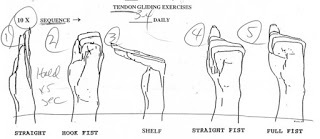 After two months of immobilization of the right arm and shoulder to try to begin the healing for my badly shattered right shoulder joint that needed but couldn't have complete surgical replacement, my right hand was not working well. I couldn't sign my name, and my signature with my left hand was totally illegible.
After two months of immobilization of the right arm and shoulder to try to begin the healing for my badly shattered right shoulder joint that needed but couldn't have complete surgical replacement, my right hand was not working well. I couldn't sign my name, and my signature with my left hand was totally illegible.As I've been able to slowly begin physical therapy for the shoulder and arm, I've also been doing PT exercises for the hand, as well. Two weeks ago tonight, I gave a poetry reading at The Writers Place in Kansas City, and I was able to sign copies of my new book of poetry, Dark Sister, that folks so kindly bought. This was a big step forward for me.
I have always been a handwritten journal person. I collect beautiful notebooks and journals and fountain pens, and people give them to me as gifts. I wrote in one most days of each week. I haven't been able to since April 4th, when I fell and shattered this shoulder. But tonight I have handwritten a short paragraph in my current journal. My therapist told me to do it every day now until it hurts, along with spinning and knitting, because it will help exercise and strengthen the muscles and tendons.
Something about this whole idea reminded me of what we writers do, so here's a poem about that.
HAND THERAPY
Bring your palms together in prayeragainst your chest. Feel the pull
in the once-broken right wrist.Release, relax, and repeat ten times.
Squeeze the putty to make a fist.Pinch it between your thumb and each finger,
one after another down the lengthof the squeezed-out roll, creating a wavy snake.
Hook the tips of all four fingers, tryingto touch tips to bases, but inches of air
keep them apart. Pull those fingertipsto the center of the palm to make a fist
without the putty’s help. Stretch themdown toward the base of the hand.
Struggle to hold a pen and write a line.Stop when the fingers tingle and go numb.
For what are we humans without the hand, clever, useful appendage, connected so closely to our big brains,
that cuts, creases, carries, and caresses our way through daily obstacles and opportunities.
Write another line and a second before the pain
Published on August 31, 2018 15:14
August 21, 2018
The Last Beloved Woman of the Cherokee--Poem
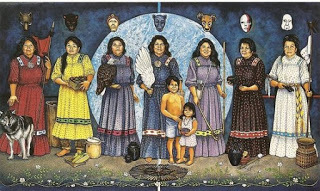 "She speaks for her clan" by Dorothy SullivanThe Cherokee, like so many Native nations, were matrilineal. The fields, homes, and children all remained with the mother and her family if the couple separated.
"She speaks for her clan" by Dorothy SullivanThe Cherokee, like so many Native nations, were matrilineal. The fields, homes, and children all remained with the mother and her family if the couple separated. Women had political influence in the councils, could negotiate with other nations, and were clan leaders. When European men first encountered the Cherokee, they were appalled at the influence Cherokee women had at a time when they kept their own women as chattel. In turn, the Cherokee men were appalled that the Europeans had no women in their councils.
 Nanye-hi, Nancy WardThe highest role a Cherokee woman could achieve was "ghi gua," Beloved Woman or War Woman. Nanye-hi, the subject of this poem, had served an apprenticeship in diplomacy with her powerful uncle, Attakullakulla, so she was well-prepared for the role she held for most of her adult life. She also saved the life of a white captive and learned from her how to weave cloth on a European loom, bringing that knowledge back to her people. Her son, Fivekiller, said that, upon her death, he saw a white light leave her body and enter the most sacred mound in the Mother Town, Chota, at a time when Removal (which she had fought against for so long) was almost upon the Cherokee.
Nanye-hi, Nancy WardThe highest role a Cherokee woman could achieve was "ghi gua," Beloved Woman or War Woman. Nanye-hi, the subject of this poem, had served an apprenticeship in diplomacy with her powerful uncle, Attakullakulla, so she was well-prepared for the role she held for most of her adult life. She also saved the life of a white captive and learned from her how to weave cloth on a European loom, bringing that knowledge back to her people. Her son, Fivekiller, said that, upon her death, he saw a white light leave her body and enter the most sacred mound in the Mother Town, Chota, at a time when Removal (which she had fought against for so long) was almost upon the Cherokee.Nanye-hi was the last Beloved Woman of the Cherokee until the 1980s.
THE LAST BELOVED WOMAN
Mother-clanned, the Cherokee towns, farms, and orchards, before all were stolen by those who forced the People on the long dread march west,belonged to the women, as did the children.
Nanye-hi, in 1738 born a daughter of the Wolf Clan, married Kingfisher, bore two children.During the Battle of Taliwa,she took her dead husband’s place,avenged his death, rallied warriors to victory,became a ghi gua.
Ghi gua, or Beloved Woman, title given by the seven clans to women who had served the Peopleas warriors and mothers both.Given a swan’s wing and special place in council,the ghi gua even held a voting seat on the Council of Chiefs. With their swan wings,they had the final say over whether the town went to war.
Today I watch women go to a war foolish as many,often leaving babies behind.Something’s out of synch, though.It’s still old men, who’ve never set foot on battlefieldnor suckled a babe, making decisions of war and peace.
Nanye-hi married again, a white man named Ward.Nancy Ward, the ghi gua, respected among Cherokees and settlers, warned settlements of impending attacks, to prevent complete war,negotiated treaties, all later broken.
At the end of life, settlers forced Nanye-hi from her home to die before the Trail of Tears.Trying to fit the white man’s mold,the Cherokee shed their councils.No place for Beloved Women.Nanye-hi Nancy Ward was the last ghi gua.
We need women with swan wings.
Published in Dark Sister (Mammoth Publications, 2018)
Published on August 21, 2018 06:47
August 1, 2018
Drunk Screenwriters Write My Family History
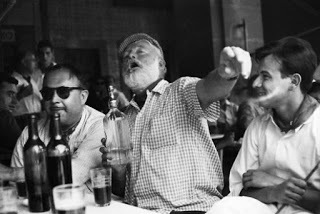
My husband is an internationally recognized scholar in his field and a research maven, so naturally he was drawn to the project of tracing my family history with a grandmother who had married and divorced thirteen times to ten different men. Most experts like a challenge, and my convoluted family history seemed a challenge he would take on and defeat easily with his ninja research skills. This weekend at lunch, he moaned to me about the latest bizarre twist he'd uncovered. “The more information I collect, the more confusing it gets, and the less I know,” he complained.
We laughed at the strange tale he's just uncovered about my great-grandparents and the way that means he once again has much more work to do and it will be more difficult. He said, “No one would believe any novel you wrote with all the unbelievable but true stories about your family. They'd say it's too contrived and incredible.”
This left me picturing a group of drunk screenwriters sitting around, desperate to pitch a story that will excite the studio execs and get funding and become a huge hit.
Amy says, “We'll begin with a guy who marries a woman while he's using an assumed name—and he doesn't tell her about it for years, but when he does, she has kids and goes on with him under his real name.”
Dave adds, “But they keep divorcing each other, marrying different people, then divorcing those people, and remarrying each other again and again.”
“Yeah, I like it,” says Martin. “They're each the great love of the other's life, but they just can't seem to make it work. That's give us lots of dramatic conflict.”
“And then,” Amy continues, on a real roll now, “their oldest daughter, who's grown up with all this passionate craziness, gets married young and leaves husband and baby a year later to marry another guy, whom she leaves in less than two years with another baby, to go marry a guy with the Texas Rangers, who gets killed in a gunfight, causing her to lose another baby, and then she goes on a real tear, marrying and divorcing guys all over the place.”
Martin laughs as he's taking a swig of vodka and spits it all over. “And one of them is an immigrant from Czechoslovakia who loves her so much that he keeps hanging around even after she dumps him and remarries her whenever she's in some kind of trouble, but keeps hanging around even after she jilts him again and again.”
Dave nods with a grin. “Loyal Dobbin. Every story needs a loyal Dobbin.”
“We've got to make it weirder,” says Amy. “More complications. Maybe the Texas Ranger isn't really dead and starts trying to find her, but she's marrying all these guys and taking their names. Oh. And she starts out as Bessie, but she decides Agnes is a name with more class—she's trying to marry her way up the social ladder, a real Becky Sharp right out of Thackeray on the American frontier.”
“Nah! Make it Indian Territory before it became Oklahoma and make her an Indian and some of these guys she marries early on Indians, too, but then she's going for richer white guys.” Dave grins again. “And of course, we've got Martin's crazy Czech hanging around, poor at first but he could be making himself richer and richer for the sake of her.”
“I like it!” Martin says. “And she also masquerades as someone named Dolly, too, when she wants to get out of a tight situation. Then, as she gets older and more settled, we've got those abandoned kids to come looking for her and make her life difficult in revenge.”
“I've got it!” shouts Dave, jumping around and half-falling over in drunken excitement. “She was the oldest of a big family and born while that father was still using a false name. Her birth name isn't even what she thinks it is. Maybe her dad was a crook or a wanted man of some kind. Maybe someone finds out and blackmails her.”
“Yes!” screams Amy. “When she's older and thinks it's all behind her, her son can come back and rape her baby sister she's always been closest to, and on her deathbed, her daughter will find her and accuse her of ruining her life and tell her she's glad she's dying.”
Martin shakes his head. “Dammit! I hate that Bette Davis is dead. Would she make a great Bessie/Agnes or what? It would be Oscars all the way. I can see it now.”
The three are now so drunk and stoned on the weed they've been smoking along the way that they just lay back in a beatific stupor, sure that they've come up with the greatest movie concept ever and their fortunes are surely made.
I am married to a man of fortitude, however, and he has only begun to fight. He's currently trying to track down the marriage certificate for that initial marriage between my great-grandparents under the false name—and who knows what new dramatic material he will uncover when he does?
Published on August 01, 2018 13:04
July 1, 2018
On Listservs, Laura Ingalls Wilder, and Sisters in Crime
As some of my friends and followers on social media know, I have been distressed by reactions to the ALSC renaming of the Laura Ingalls Wilder Award, as expressed on the Sisters in Crime listserv. In part, this disappointment was because Sisters in Crime had recently launched a diversity initiative of some ambition and had been taking a lot of the right steps to make their overwhelmingly white organization truly inclusive, so I had a lot of love and hope and high expectations for this organization of writers. The many comments that ranged from simply entitled and tone-deaf to dog whistles to open racism (an actual comparison of the award name change to lynching, for example) felt like a direct slap in the face to Native and African American writers and readers, while some with broader references like “putrid political correctness” and “victim culture,” probably slammed home with other writers and readers of color, with disabilities, in the LGBTQ community, as well.
They certainly reminded me, viscerally, of the hurt I felt when I was a childish bookworm reading Wilder's books and encountering statements that insulted and diminished Native people, such as “there were no people there, only Indians.” When a famous and respected writer writes that you and your family are not even really human, the child you were sustains damage, whether you become defensive and angry to protect your people or ashamed and feeling guilt about your own heritage and culture. One of my friends was African American, and as I read what Wilder wrote about African Americans, I had wondered if it hurt her as much as her remarks about Natives hurt me—and I had thought it surely must.
The angry comments in reaction to the award name change filled the listserv in an onslaught with only a couple of people (for whom I am truly grateful) speaking out against them. It looked so lopsided that I almost gave up hope for the organization. This was probably easier to do because of the dark political climate of the past two years—and especially the past week. As all these stressors from the national stage pile up incrementally, it becomes easier to despair, and any kind of optimism becomes difficult to manage, creating extra impact for any local negativity, especially if it echoes the national trend of targeting Natives, people of color, people with disabilities, LGBTQ people, immigrants, Muslims, poor people, and women. (It probably didn't help that I am housebound with a shattered right shoulder and other injuries connected to that. Injury and illness are depression's handmaids.)
Then, after a private conversation with me about the situation and social media posts about it by me and others, a past president of the organization, Catriona MacPherson, wrote a passionate but lucid and cogent essay on Facebook (https://www.facebook.com/catriona.mcpherson.54/posts/1169564503186127)in rebuttal of the problematic comments on the Sisters in Crime listserv (reminding me immediately of why she is one of my favorite people). Hundreds of people in the mystery community and SinC responded to her post—all in support, save one. More than 175 people shared her post on Facebook, often with their own statements of support added, and each of those shared posts accumulated many responses from the mystery community, almost all supportive, as far as I could see. Then some of the people who had shared her essay put their own strong statements in favor of the name change or in support of members from marginalized communities on the SinC listserv, and I began to see that my initial faith in the organization had been justified.
Finally, the Sisters in Crime Board closed the listserv, with President Kendel Lynn saying its eventual closure had been discussed for some time, but this ugly discussion had prompted them to shut it down now, in hopes of reinventing it soon in some way that would be healthier, more constructive, and less likely to become hurtful. (https://www.facebook.com/sistersincrime/posts/1454969294649630) I didn't particularly want the listserv closed, and I don't think anyone else did, either, but I believe the Board faced a difficult situation with no easy solutions and made the best decision they could after one of the listserv monitors tried to end the discussion on this topic and was completely ignored. The Board made a decision that they knew would be unpopular with some members, because they wanted to keep the organization true to its expressed ideals. They have my respect for their courage and commitment to the organization's mission and goals.
I have been burned many times by organizations that talk the diversity and inclusiveness talk but fail to make needed changes to carry out these goals or retreat when faced with divisive situations, such as this that Sisters in Crime faced. SinC and the mystery field, in general, are overwhelmingly white, ablebodied, and heterosexual but more and more writers from marginalized communities are showing up and being published—and the field has always had interest for readers from those communities. The situation that Sisters in Crime and the larger mystery community is facing is one that all literary communities in this country face. It is the same situation that our nation as a whole faces. The many communities of people who have been left out or dismissed or openly (or covertly) oppressed are tired of the status quo and insist that the United States live up to its expressed ideals. This upsets, frightens, threatens, and enrages people who have benefited, willingly or unwillingly, consciously or unconsciously, from the status quo.
Publishing and the mystery field are a microcosm of that larger situation. Sisters in Crime, which began thirty-two years ago as an advocacy and mutual support organization for women in crime fiction, who faced discrimination and prejudice, has had great success in that initial mission and has now expanded it to include other kinds of discrimination and prejudice. I look forward to seeing the organization once again leading the way in the field of crime fiction and in publishing itself, as it has proven itself so capable of doing.
Published on July 01, 2018 15:00
May 28, 2018
In Memoriam
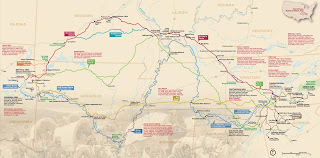 On this day 188 years ago, May 28, 1830, President Andrew Jackson signed the Indian Removal Act, which led to the deaths of over 1/4 of the total Cherokee population and thousands more from Choctaw, Chickasaw, Creek, Seminole, Delaware, Shawnee, and Osage nations. The Cherokee fought this act in Congress and in the courts, all the way to the Supreme Court, in fact, where the Court ruled against Jackson and found the Cherokee a "sovereign nation." Jackson famously taunted the Court with their inability to enforce that decision and sent the Army in to round up the Cherokee, imprison them in internment camps, and forcibly drive them across the country to Indian Territory.
On this day 188 years ago, May 28, 1830, President Andrew Jackson signed the Indian Removal Act, which led to the deaths of over 1/4 of the total Cherokee population and thousands more from Choctaw, Chickasaw, Creek, Seminole, Delaware, Shawnee, and Osage nations. The Cherokee fought this act in Congress and in the courts, all the way to the Supreme Court, in fact, where the Court ruled against Jackson and found the Cherokee a "sovereign nation." Jackson famously taunted the Court with their inability to enforce that decision and sent the Army in to round up the Cherokee, imprison them in internment camps, and forcibly drive them across the country to Indian Territory.In memory of my ancestors, here is a poem to mark this dark day in American history.
INDIAN REMOVAL CARTOGRAPHY
“I fought through the War Between the States and have seen many men shot, but the Cherokee Removal was the cruelest work I ever knew.”
— Georgia soldier who participated in the removal
It’s an old map,looks hand-drawn.Starting in Georgia, North Carolina, Tennessee, Alabama,a broad swath of territorybelonging to the Cherokee,yet shrunken sofrom where the first Europeans found them,that kidney-shaped provincesplayed across the states contracts down to these thin linesmarking the paths they were forced to travel.
This old-looking maphas been modified for the modern scholarwith gray-banded place names highlighted.When you hover a computer mouseover one of these shaded names,pertinent facts appear.From New Echota, capital of the Cherokee Nation in 1838, now a state park,to Fort Butler, one of five North Carolina stockades where Cherokee were held under foul conditions,to Fort Payne, yet another removal fort and internment camp in Alabama,to Ross’s Landing where more than 2,000 were held prisonerand departed in three large groupsto travel to Indian Territory by water.The Unicoi Turnpike, an ancient war and trading path,took other groups onto the Trail of Tears,is now designated a Millennium Trail.Charleston, Tennessee, where 13,000 were heldfor months, waiting to begin their unwilling trekacross five states in winter.Hopkinsville, Kentucky,Chief Whitepath died and was buried here,remarkable for being one of the few whose graves are known.Hover long enough over Hopkinsvilleand the screen will tell you“Most of the thousands of Cherokees who died on the Trail lie in unmarked graves.”
Published in Dark Sister (Mammoth Publications, 2018)
Published on May 28, 2018 17:08
May 27, 2018
Catching Up, or Why I Was Gone
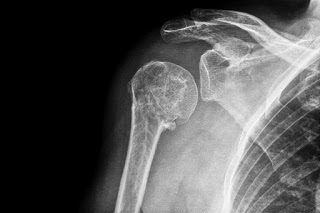
I have been a very uneven blogger here lately, in part because this past winter has been a physical disaster for me. After developing Giant Cell Arteritis (GCA), a major illness that requires me to be on massive steroids in a maintenance dose for possibly years and the pain and difficulties I went through with that before it was diagnosed and treated, I then contracted the awful H3N2 flu that turned into bronchitis and knocked over a month out of my life.
As we began to come into spring, and I was just getting starting to get back on my feet slightly after the flu and bronchitis, I fell and shattered my right shoulder. This has left me almost totally disabled. I am right handed, and it's not just the arm that I cannot use but the shoulder, as well, so it's basically the whole upper right side of my body that cannot be used. You would be surprised how much you cannot do if you cannot use the upper right side of your body. Even hauling yourself out of the recliner you must spend most of your time in can be difficult—or impossible, in my case. (Luckily, I have a lift recliner chair arriving Tuesday, which should allow me more independence.)
 My right arm and shoulder have been immobilized by the doctors. Because I'm on all the steroids and because I have lymphedema in that arm from my radical mastectomy for breast cancer, I am a really poor risk for surgery, even though that shoulder requires a complete shoulder replacement. We are, instead, trying to get the shoulder to heal in some jury-rigged way without surgery.
My right arm and shoulder have been immobilized by the doctors. Because I'm on all the steroids and because I have lymphedema in that arm from my radical mastectomy for breast cancer, I am a really poor risk for surgery, even though that shoulder requires a complete shoulder replacement. We are, instead, trying to get the shoulder to heal in some jury-rigged way without surgery.I have, after the first week, continued to do work on freelance writing and editing contracts and teach a large, intensive online class in writing a novel. The only way I am doing this is with voice recognition software, which is also how I am completing this blog. Because of all this, I will probably still be rather hit and miss with this blog for awhile here. Voice recognition software has not reached a great pinnacle of efficiency. It does save me a lot of time and a lot of work with my left hand, which is excellent, because my left shoulder and elbow have damage from lupus, and I don't need to injure them further. But after dictating, I must go over and correct multiple mistakes that the software puts into my text. Random capitalizations all over the place. Words that may have been mistaken for others. Typos. Egregious misspellings. It's quite time consuming. (So please forgive any typos I've missed.)
Just as I went down with the flu, my next book of poetry was published. Dark Sister is truly a book of my heart. It is a book of poems that are based in my family, in my heritage, and in my community. They deal with some of the things that are most important to me in the world. Unfortunately, I have not been able to do what I planned or would have wished to promote this book. I hope to be able to do more in the future. I would greatly appreciate anyone who is interested in buying or reviewing the book. Dark Sister is my 10th book to be published, rather a significant milestone that I would like to celebrate by promoting the book and helping it to find its readership. It had been seven years since my last book of poetry, Heart's Migration, which brought me awards and opportunities, but in those seven years, I published seven other books, including several anthologies of other poets' work.
I also had hoped to bring back my blog series, Books of Interest by Writers of Color. So many wonderful writers of color are publishing terrific books right now. This is a golden age for these books by diverse authors. Unfortunately, most of them are from very small houses without promotion and publicity budgets, and they get very little distribution and very little publicity. So I would really like to be once again promoting these books and letting readers, teachers, and librarians know about them with links to buy them. That will, unfortunately, have to wait until I am a little further along in recovery, I'm afraid. That's a big disappointment to me.
I do hope, however, to blog more regularly here, as I get better at using the voice recognition software and begin to heal and regain use of my right arm and shoulder little by little. So I hope to visit with you more often and begin my Books of Interest by Writers of Color series again soon. There are SOOOO many terrific books I want to tell you about!
Published on May 27, 2018 17:11
May 12, 2018
Remembering My Mother on Mother's Day With A Poem
Mother's Day is always a difficult holiday for me. As with many people my age, I buried my mother a number of years ago. So this day that celebrates mothers can be tough.
I find it especially difficult because my mother and I did not have a good relationship for the majority of my life, especially near the end of hers. My mother was never able to show me any kind of love or affection, no matter how much I showered her with, and this was always an open wound in my life.
I know many other women who have had similar dysfunctional relationships with their mothers, so I know this is not a unique problem. Mother's Day is not the warm and fuzzy holiday for us that it is for women whose mothers are still alive and with whom they have/had close, loving relationships.
I love my mother and miss her terribly even after all these years , but I also longed for her and missed her in much the same way during her actual lifetime. So this post and this poem are for my mother on Mother's Day—and for all the other women out there like me who still long for and miss their mothers, even after their deaths. A complicated woman in a complicated relationship, who, like most mothers , did the best she could, I suspect.
CONVERSATION WITH MY MOTHER’S PICTURE
You and Dad were entirely happy here—
 you in purple miniskirt, white vest and tights(you always wore what was already too youngfor me), Dad in purple striped pants,a Kansas State newsboy’s cap made for a bigger man’s head.You both held Wildcat flags and megaphonesto cheer the football team who,like the rest of the college, despised youmiddle-aged townies, arranging for their penicillinand pregnancy tests and selling themcameras and stereos at deep discount.But you were happyin this picture, before they foundoat-cells in your lungs.
you in purple miniskirt, white vest and tights(you always wore what was already too youngfor me), Dad in purple striped pants,a Kansas State newsboy’s cap made for a bigger man’s head.You both held Wildcat flags and megaphonesto cheer the football team who,like the rest of the college, despised youmiddle-aged townies, arranging for their penicillinand pregnancy tests and selling themcameras and stereos at deep discount.But you were happyin this picture, before they foundoat-cells in your lungs.After the verdict, he took you to Disneyland,this man who married you and your five childrenwhen I was fifteen. He took you cross-countryto visit your family, unseensince your messy divorce.He took you to St. Louisand Six Flags Over Texas and to Topekafor radiation treatments.I don’t think he ever believedyou could die. Now he’s goingthe same way. And none of uslive in that Wildcat town with the manwho earned his “Dad” the hard wayfrom suspicious kids and nursedyour last days. For me, this new dyingbrings back yours, leaving me only this imageof you both cheering for lucky winners.
Published in Heart's Migration (Tia Chucha Press, 2009)
Published on May 12, 2018 21:25



